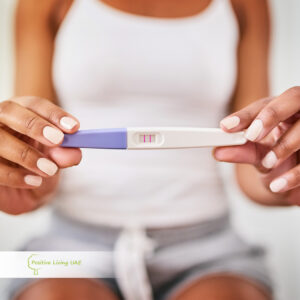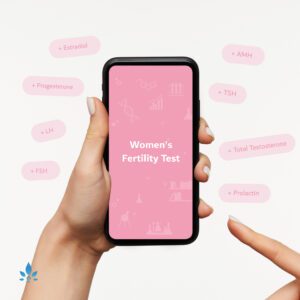How can I Increase my Chances of Getting Pregnant


You’re ready to start a family and you want to know what helps you get pregnant fast.
Conceiving can take time, and fertility is different for every woman and couple. If you are trying for a baby, there are natural ways to increase your chances of getting pregnant.
Getting your body ready for pregnancy
You can start by taking some lifestyle steps to prepare your body for conception. Your health before pregnancy can improve your chances of conceiving. And preconception wellbeing contributes to a healthy pregnancy.
So, in the 3 to 4 months before trying for a baby:
– Take prenatal vitamins: Start taking prenatal vitamins with folic acid before and during pregnancy to ensure your body is nutritionally strong, with all the minerals and vitamins required for healthy fetal development.
– Get a well-woman health check: Get a full preconception medical to flag any potential health issues that could affect you getting pregnant naturally or could affect your pregnancy. Use this check-up to make sure your vaccinations are up to date.
– Stop smoking, vaping, and drugs. Limit alcohol intake and cut back on caffeine.
– Eat a balanced diet: Boost your health with a varied diet covering all five food groups.
– Keep a healthy weight: Being underweight, obese or overweight can affect your fertility.
– Exercise regularly: Exercise that builds strength, endurance and muscle tone will help your body stay healthy and strong during pregnancy and labour.
– Get lots of sleep: Sleep patterns affect hormones. Stick to a regular 7-8 hours sleep routine as you prepare your body to conceive.
– Reduce stress: High stress levels are linked with difficulties getting pregnant.
– Come off hormonal contraception: If you’re on hormonal contraception (the pill, IUD, patch, ring implant) your body needs time to readjust and for cycles to return to your personal normal.
Know your fertile window
Timing is everything when you want to conceive. You need to time sex with ovulation. The man’s sperm must meet and fertilise the woman’s egg at the right time.
Knowing your fertile window and timing sexual intercourse with ovulation is key to increasing your chances of getting pregnant.
Women typically ovulate around 12 to 14 days before their next period. If your periods are regular (the average menstrual cycle is 28 days but it’s normal for women’s cycles to be anywhere from 21 to 40 days) you count back from the first day of when you would expect your next period.
Trying to get pregnant
Have sex at least every 2 to 3 days in the lead-up to ovulation. Sperm can survive for several days in the female reproductive tract and once you’ve ovulated your egg has a 12-to-24-hour window for fertilisation, so for the best chances of conception have regular sex in the lead up to that brief window.
What are the signs of ovulation?
Use fertility awareness methods to predict when you are most likely to conceive. If you have irregular cycles, combine these non-invasive physiological cues with tracking your menstrual cycle length to determine when you are most fertile:
– Check cervical mucous: As you near ovulation you’ll notice your discharge becomes clear, stretchy, and wet, with the consistency of raw egg whites. This means you are at your most fertile.
– Chart your basal body temperature (BBT): There’s a small rise in body temperature after ovulation. Measuring BBT over 3-4 cycles will give a fairly accurate prediction of the exact point of ovulation.
Other methods for tracking ovulation include:
– Calendar method: This works by recording menstrual cycles on a calendar for 6-12 months and calculating fertile periods. It’s most effective as a fertility predictor when combined with cervical mucous and BBT methods.
– Ovulation predictor kits: Over the counter ovulation kits work in a similar way to at-home pregnancy tests. You pee on a stick measuring luteinizing hormone and a surge in this hormone indicates ovulation. Unfortunately, this doesn’t prove an egg has been released and a woman can have the hormone surge but fail to ovulate.
– Period tracker apps: Smartphone ovulation tracker apps, like OvuSense, monitor menstrual cycles and predict fertility.
Fertility awareness, knowing and understanding your body and its menstrual cycles, and lots of patience, helps lots of couples to conceive. But getting pregnant isn’t always as straightforward as knowing your body and having lots of sex.
If it’s taking longer than expected to fall pregnant, make an appointment with your healthcare team. If you are under 35 see a doctor after 12 months of trying for a baby. If you are over 35 seek advice after 6 months of trying to get pregnant.
Nabta Health provides personalised and evidence-based support and resources for women, wherever they are on their fertility journey.













































